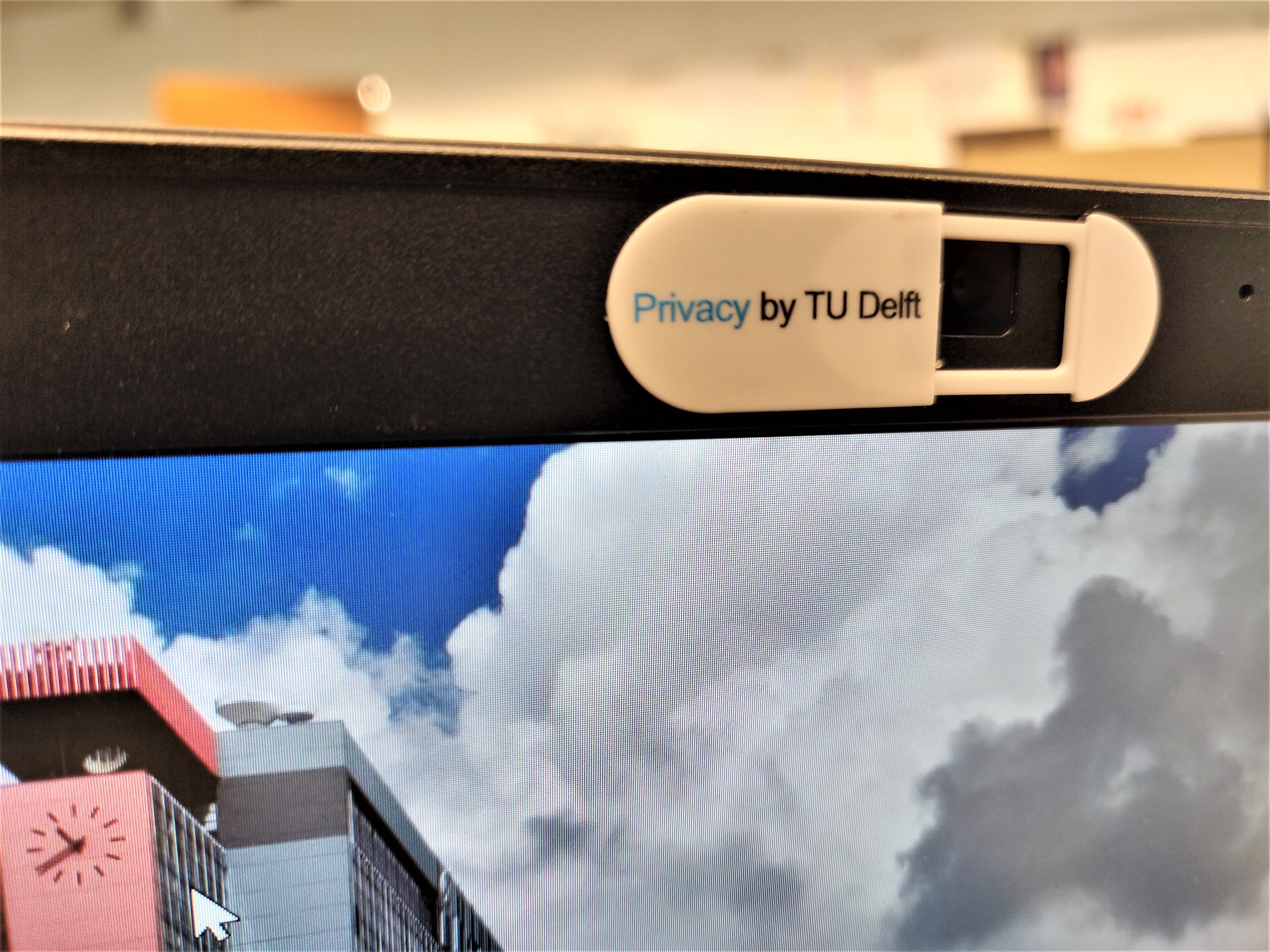The Student Council of the University of Amsterdam has begun preliminary proceedings against the university for its use of surveillance software during online examinations.
At TU Delft, students also object to the use of surveillance programmes. (Photo: Marjolein van der Veldt)
Privacy complaints about online invigilation have been piling up since the start of the corona crisis. Youth organisations voiced their concerns, and the House of Representatives weighed in on the issue as well. So far, two universities of applied sciences have openly distanced themselves from the hotly debated monitoring software.
The University of Amsterdam (UvA) has not: it expects to hold another two hundred online exams using Proctorio invigilation software before the end of the spring semester. The software uses students’ webcams to monitor them as they take their exams at home.
The Central Student Council is now bringing the matter to court, reports student magazine Folia. The Council feels that students should be able to refuse the use of Proctorio during online exams without incurring study delays.
Under the Dutch Higher Education Act, new exam methods cannot be used without the consent of the central councils and faculty councils. In April, the Central Student Council of the UvA issued a negative recommendation on the use of Proctorio, but the university’s Executive Board decided to use the software nevertheless. The Council hopes that participation councils at other institutes of higher education will also benefit from the preliminary proceedings.
Difficult to predict
The case will be brought before the Amsterdam District Court on Thursday. The students’ chances of winning the suit are difficult to predict, says Paul Zoontjens, professor of education law at Tilburg University. “If the university can make it clear that it has neither the staff nor the facilities to hold exams in any other way, the judge will be sensitive to that. But if the students can demonstrate that other institutions do offer alternative options, that could sway the case in their favour.”
The question remains whether the students are going about this the right way, as there is also a national committee for these kinds of disputes, to which the council could have turned first. “It won’t help their case if it turns out they did not approach the committee”, says Zoontjens.
Minister of Education Ingrid van Engelshoven (D66) seems unsympathetic to the privacy concerns raised with regard to online invigilation. Earlier this year, she called on the participation councils to show adaptability and flexibility “where necessary” during the corona crisis.
Petition
At TU Delft, students also object to the use of surveillance programmes. A petition against online proctoring has already been signed more than 1300 times. Students are worried about what RPNow, the American company that provides the TU Delft with online proctoring software, will do with their data, but also about hackers who steal their data. “This petition calls for finding more privacy-respecting alternatives of assessment”, they write. Examples are alternative assignments such as essay-writing, time-limited exams, oral interviews and open-book exams.
HOP, Evelien Flink / Delta, Saskia Bonger
Translation: Taalcentrum-VU
Do you have a question or comment about this article?
redactie@hogeronderwijspersbureau.nl


Comments are closed.